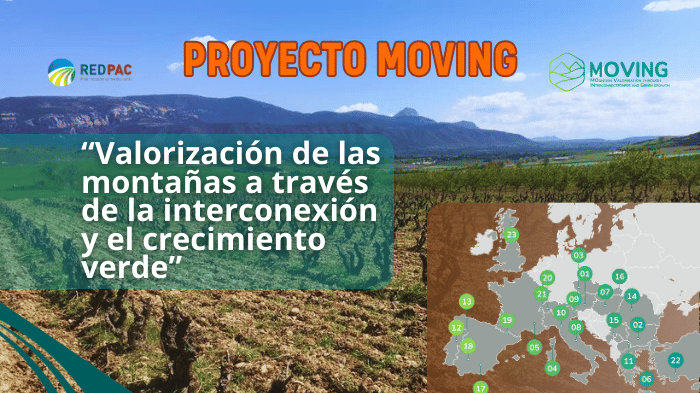
12 de July de 2024
Innovación
Cambio climático y gestión de recursos naturales
Calidad y cadena alimentaria
The project has highlighted how the impact of policies on value chains goes far beyond the economic aspect, influencing territorial, community, ecological, and social aspects.
Four years of in-depth study of European mountains—which cover 36% of the country—has yielded a lot. At least that's what the Horizon 2020 project demonstrates. 'MOVING' ( 'MOuntain Valorisation through INterconnectedness and Green growth' ), which held its final conference last June , entitled 'A future for rural areas in the post-2027 priorities of the European Union'.
Held in Brussels, Belgium, this presentation of results brought together policymakers, research institutions, forestry organizations, and other stakeholders to underline the key role of rural and mountain areas in helping the European Union (EU) achieve its 2030 policy objectives and in “unlocking the power of forest-based value chains,” especially beyond the post-2027 programming period.
Strategic issues and future
MOVING was established with the coordination of the University of Córdoba and EU funding from Horizon 2020 to address the lack of up-to-date knowledge about European mountains in ecological and socioeconomic terms, thus promoting their management and sustainability. Its focus was on building relevant policy frameworks that involve value chain actors, other stakeholders, and policymakers, and establishing improved value chains that contribute to the resilience and sustainability of mountain areas under climate change.
Since the European Commission took stock of its "A Long-Term Vision for Europe's Rural Areas 2040" strategy last April , the event sought to place forest areas within this strategy for creating strong and prosperous rural areas.
Furthermore, the conference, once all the outcomes were compiled, established a series of policy recommendations to strengthen mountain value chains. These can be found in a policy roadmap. In line with the "key results achieved during the four-year journey of the MOVING project." The concrete results of 'MOVING' can be summarized as follows:
- Forest Value Chain Inventory: includes, in addition to an infographic , a comprehensive description of more than 400 mountain value chains in EU forest areas, as well as their associated natural resource systems.
- Conceptual analytical framework: defines and analyzes the key concepts of the project, such as socio-ecological systems, value chains, social practices, telecoupling, etc. It includes both the first version produced in 2021 and the final updated version .
- Vulnerability tools: These emphasize how drivers of change impact the territory and the varying susceptibility of regions.
- Map Stories: These are virtual maps that combine textual elements, interactive maps, and multimedia content with captivating stories framed in immersive narratives.
- Global Improvement Strategies: An analysis that examines their susceptibility to hazards and the territorial capitals on which they depend. If vulnerabilities are identified, the project proposes strategies to improve resilience. MOVING also assesses how to correct unsustainable practices.
- Cross-Case Comparative Report on Mountain Value Chains: An analysis examining the contributions of five working groups to sustainability and resilience. It also highlights challenges and solutions, emphasizing the critical role of mountain value chains in the supply of goods.
- Strategic Options Repertoire: A document containing 30 options aimed at addressing the challenges identified by local stakeholders. It serves as a guide to the policy requirements needed to achieve the objectives.
- Policy Roadmap: This is the aforementioned roadmap . Based on the conceptual analytical framework, it synthesizes, structures, and communicates all the project's findings in a policy-oriented manner. It uses informative language, presents a practical guide to available policy instruments (2021-2027), and offers recommendations for better long-term strategies in forestry development assistance policies. It is a work in progress.
- Policy Design Toolkit : Offers insights into applicable tools for policymaking at its various stages. As of July 2024, it is not yet available, but it will include all the levels needed for policy development: problem characterization, problem assessment, objective specification, options assessment, and policy design.
The project has highlighted how the impact of policies on value chains goes far beyond the economic aspect, influencing territorial, community, ecological, and social aspects.
Finally, the policy papers compile the policy findings from the various working groups and activities developed over the four years of MOVING's existence.









